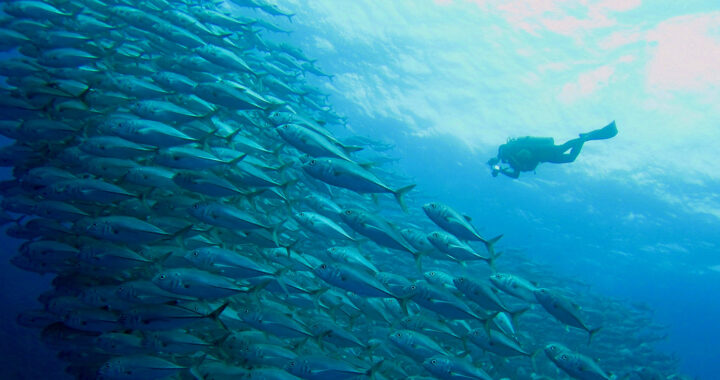An international study, published in Cell Reports Sustainability in July 2025, investigated the impact of scuba diving tourism in the global economy and environmental conservation. It underscored contributions in supporting not only local livelihoods but also marine conservation, thus positioning it as a major driver of the ocean-based blue economy.
Study Reveals the Significant Global Economic and Environmental Conservation Impact of Scuba Diving Tourism
The study, led by researchers from the University of British Columbia and Scripps Institution of Oceanography, surveyed 11590 scuba operators across 170 countries. Data from 425 operators in 81 countries were used to calculate revenues from activities such as equipment rental, certification, and guided dives. It highlighted the extensive global footprint of scuba diving tourism and its deep connection to coastal communities worldwide. Below are the key findings:
• Massive Global Economic Contribution: Scuba diving tourism generates between USD 8.5 and USD 20.4 billion annually worldwide. USD 0.9 to USD 3.2 billion of this is direct revenues from diving-related activities. The remainder comes from indirect spending on travel, lodging, and other services. This positions scuba tourism as a significant sector of the global blue economy rather than a niche market.
• Extensive International Footprint: The study identified 11590 dive operators operating across 170 countries. Survey data were collected from 425 operators in 81 countries to create a representative global snapshot. This broad presence demonstrates not only the scale of scuba diving tourism but also its established integration in both developed and developing coastal economies across the world.
• Specific Employment and Local Benefits: Approximately 124000 jobs are supported by scuba diving tourism around the world. It is important to note that 80 percent of these positions are held by residents. This ensures direct benefits to coastal communities. Roles extend beyond diving instruction to boat operations, hospitality, and ecological management, thereby showing its diverse contribution to livelihoods.
• Established Link to Marine Conservation: Roughly 70 percent of global dives occur within marine protected areas. Healthy ecosystems, rich biodiversity, and coral reef vitality are critical attractions for divers. This creates strong economic incentives for marine and overall environmental conservation efforts. Degraded marine ecosystems directly reduce the appeal and revenue potential of scuba diving tourism.
• Sector Sensitivity to Environmental Health: Scuba divers, unlike surface-based tourists, immediately notice declines in fish populations and reef quality. This heightened awareness often translates into advocacy for better marine protections and supports local conservation initiatives. The reliance of the entire industry on ecological health connects its long-term sustainability to focused ocean preservation efforts.
The total economic value of scuba diving tourism could be higher. The study did not include the economic impact of scuba gear manufacturing or certification organizations. Researchers call for standardized global monitoring systems to improve revenue tracking and assess evolving tourism patterns. Initiatives such as Atlas Aquatica are working to organize dive operators into networks to strengthen their voice in marine policy decisions.
Findings support incorporating scuba diving tourism into marine spatial planning and sustainable development strategies. Governments can leverage dive tourism revenues to fund marine protected areas and community-based conservation. It is interesting to note that this dual benefit—economic and environmental— makes scuba diving tourism a model for sustainable tourism that factors in the need to balance growth with ecological stewardship.
FURTHER READING AND REFERENCE
- Schuhbauer, A., Favoretto, F., Wang, T., Aburto-Oropeza, O., Sala, E., Millage, K. D., Cabral, R. B., Sumaila, U. R., Hsu, A., Lucrezi, S., Tighsazzadeh, M. N., Plascencia de La Cruz, M., and Cisneros-Montemayor, A. M. 2025. “Global Economic Impact of Scuba Dive Tourism.” Cell Reports Sustainability. 2(7): 100435. DOI: 1016/j.crsus.2025.100435
